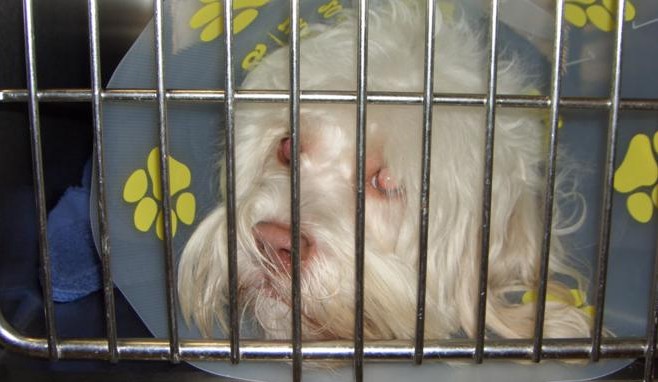
 Orchidectomy (castration or neutering) refers to removing an animal’s testicles so that he cannot reproduce. The surgery is quite simple to perform, and pets do very well afterwards.
Orchidectomy (castration or neutering) refers to removing an animal’s testicles so that he cannot reproduce. The surgery is quite simple to perform, and pets do very well afterwards.
Aside from the obvious benefit of not being able to make babies, there are many health and behavioural benefits of neutering your puppy or kitten. When male pets reach puberty, they begin to exhibit certain secondary sexual characteristics, similar to how boys’ voices change or begin to grow facial hair.
Some of these secondary sexual characteristics can be particularly unpleasant to deal with, such as the nasty, stinky, strong urine smell that intact post-pubertal male cats produce. Trust me — you don’t want to go there.
Un-neutered males will also usually roam, a behaviour where they try to get away from home when they smell a female in heat. This scent can be carried through the air a great distance, and makes the males very interested in escaping.
Having your pet neutered will avoid all of these unpleasant side effects of testosterone, as your pet will no longer have any circulating testosterone present in his body to muddle his brain (the ladies will understand that reference).
 One thing that neutering does NOT do, is “calm him down” or “change his personality”. We must remember that our puppies and kittens are neutered before they ever reach puberty (before they actually have circulating testosterone in their bodies). There is effectively no hormonal difference before and after the surgery. Although neutering prevents problems from occurring, it does not change personality in any way.
One thing that neutering does NOT do, is “calm him down” or “change his personality”. We must remember that our puppies and kittens are neutered before they ever reach puberty (before they actually have circulating testosterone in their bodies). There is effectively no hormonal difference before and after the surgery. Although neutering prevents problems from occurring, it does not change personality in any way.
Prostatic disease is a common problem seen in pets that have not been neutered. Neutering almost completely eliminates this potentially serious problem, along with the risk of testicular cancer.
